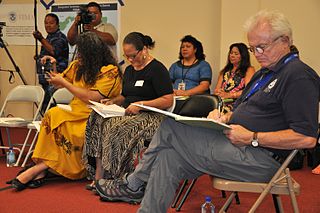Related Research Articles

Public relations (PR) is the practice of managing and disseminating information from an individual or an organization to the public in order to influence their perception. Public relations and publicity differ in that PR is controlled internally, whereas publicity is not controlled and contributed by external parties. Public relations may include an organization or individual gaining exposure to their audiences using topics of public interest and news items that do not require direct payment. The exposure mostly is media-based. This differentiates it from advertising as a form of marketing communications. Public relations aims to create or obtain coverage for clients for free, also known as earned media, rather than paying for marketing or advertising also known as paid media. But in the early 21st century, advertising is also a part of broader PR activities.

In public relations and politics, spin is a form of propaganda, achieved through knowingly providing a biased interpretation of an event or campaigning to influence public opinion about some organization or public figure. While traditional public relations and advertising may manage their presentation of facts, "spin" often implies the use of disingenuous, deceptive, and manipulative tactics.
Disinformation is false information deliberately spread to deceive people. It is sometimes confused with misinformation, which is false information but is not deliberate.

Media manipulation is a series of related techniques in which partisans create an image or argument that favors their particular interests. Such tactics may include the use of logical fallacies, manipulation, outright deception (disinformation), rhetorical and propaganda techniques, and often involve the suppression of information or points of view by crowding them out, by inducing other people or groups of people to stop listening to certain arguments, or by simply diverting attention elsewhere. In Propaganda: The Formation of Men's Attitudes, Jacques Ellul writes that public opinion can only express itself through channels which are provided by the mass media of communication – without which there could be no propaganda. It is used within public relations, propaganda, marketing, etc. While the objective for each context is quite different, the broad techniques are often similar.
An appeal to fear is a fallacy in which a person attempts to create support for an idea by attempting to increase fear towards an alternative. An appeal to fear is related to the broader strategy of fear appeal and is a common tactic in marketing, politics, and media (communication).

Pump and dump (P&D) is a form of securities fraud that involves artificially inflating the price of an owned stock through false and misleading positive statements, in order to sell the cheaply purchased stock at a higher price. Once the operators of the scheme "dump" (sell) their overvalued shares, the price falls and investors lose their money. This is most common with small-cap cryptocurrencies and very small corporations/companies, i.e. "microcaps".
Misinformation is incorrect or misleading information. It differs from disinformation, which is deliberately deceptive. Rumors are information not attributed to any particular source, and so are unreliable and often unverified, but can turn out to be either true or false. Even if later retracted, misinformation can continue to influence actions and memory. People may be more prone to believe misinformation because they are emotionally connected to what they are listening to or are reading. The role of social media has made information readily available to society at anytime, and it connects vast groups of people along with their information at one time. Advances in technology has impacted the way people communicate information and the way misinformation is spread. Misinformation has impacts on societies' ability to receive information which then influences our communities, politics, and medical field.

Social media are interactive technologies that facilitate the creation and sharing of information, ideas, interests, and other forms of expression through virtual communities and networks. While challenges to the definition of social media arise due to the variety of stand-alone and built-in social media services currently available, there are some common features:
- Social media are interactive Web 2.0 Internet-based applications.
- User-generated content—such as text posts or comments, digital photos or videos, and data generated through all online interactions—is the lifeblood of social media.
- Users create service-specific profiles for the website or app that are designed and maintained by the social media organization.
- Social media helps the development of online social networks by connecting a user's profile with those of other individuals or groups.
Influencer marketing is a form of social media marketing involving endorsements and product placement from influencers, people and organizations who have a purported expert level of knowledge or social influence in their field. Influencers are someone with the power to affect the buying habits or quantifiable actions of others by uploading some form of original—often sponsored—content to social media platforms like Instagram, YouTube, Snapchat or other online channels. Influencer marketing is when a brand enrolls influencers who have an established credibility and audience on social media platforms to discuss or mention the brand in a social media post. Influencer content may be framed as testimonial advertising.
Fear, uncertainty and doubt is a propaganda tactic used in sales, marketing, public relations, politics, polling and cults. FUD is generally a strategy to influence perception by disseminating negative and dubious or false information and a manifestation of the appeal to fear.

Social media marketing is the use of social media platforms and websites to promote a product or service. Although the terms e-marketing and digital marketing are still dominant in academia, social media marketing is becoming more popular for both practitioners and researchers. Most social media platforms have built-in data analytics tools, enabling companies to track the progress, success, and engagement of ad campaigns. Companies address a range of stakeholders through social media marketing, including current and potential customers, current and potential employees, journalists, bloggers, and the general public. On a strategic level, social media marketing includes the management of a marketing campaign, governance, setting the scope and the establishment of a firm's desired social media "culture" and "tone."

Ryan Holiday is an American author, modern Stoic, public-relations strategist, owner of the Painted Porch Bookshop and host of the podcast The Daily Stoic. Prior to becoming an author, he served as the former director of marketing and eventually an advisor for American Apparel. Holiday's debut to writing was in 2012, when he published Trust Me, I'm Lying. Holiday's notable works include his books on Stoic philosophy, such as The Obstacle Is the Way, Ego is the Enemy, Stillness is the Key, Courage is Calling, and Lives of the Stoics.
State-sponsored Internet propaganda is Internet manipulation and propaganda that is sponsored by a state.
A social bot, or also described as a social AI or social algorithm, is a software agent that communicates autonomously on social media. The messages it distributes can be simple and operate in groups and various configurations with partial human control (hybrid) via algorithm. Social bots can also use artificial intelligence and machine learning to express messages in more natural human dialogue.

Disinformation: Former Spy Chief Reveals Secret Strategies for Undermining Freedom, Attacking Religion, and Promoting Terrorism is a 2015 non-fiction book about disinformation tactics and history rooted in information warfare. It was written by former general in the Securitate, the secret police of Socialist Republic of Romania, Ion Mihai Pacepa, and law professor Ronald J. Rychlak. It was published in 2013 along with a companion film, Disinformation: The Secret Strategy to Destroy the West.
Purplewashing is a compound word modeled on the term whitewash. The prefix "purple" is associated with feminism while the verb "wash" refers to the co-opting strategies that use minority rights to maintain or enhance structural forms of discrimination.
Joan Donovan is an American social scientist researcher and lecturer at Harvard Kennedy School at Harvard University, an affiliate at Data and Society, and is research director of the Technology and Social Change Research Project at the Shorenstein Center on Media, Politics and Public Policy.
Information laundering is the surfacing of news, false or otherwise, from unverified sources into the mainstream. In advancing disinformation in such a way that makes it accepted as ostensibly legitimate information, information laundering resembles money laundering—the transforming of illicit funds into ostensibly legitimate funds.
Disinformation attacks involve the intentional dissemination of false information, with an end goal of misleading, confusing, or manipulating an audience. False information that is not intentionally deceptive is referred to as misinformation, although that has also been used as a catch-all term. Disinformation attacks may be executed by political, economic or individual actors to influence state or non-state entities and domestic or foreign populations. These attacks are commonly employed to reshape attitudes and beliefs, drive a particular agenda, or elicit certain actions from a target audience. Tactics include the presentation of incorrect or misleading information, the creation of uncertainty, and the undermining of both correct information and the credibility of information sources.
Rage farming or rage-baiting is internet slang that refers to a manipulative tactic to elicit outrage with the goal of increasing internet traffic, online engagement, revenue and support. The 2010s' neologism, clickbait, refers to sensationalist content on the internet that focused on attracting click-throughs at the expense of accuracy and quality. Unlike clickbait, rage bait and rage farm almost always have a negative connotation. Rage baiting and rage farming manipulate users to respond in kind to offensive, inflammatory "headlines", memes, tropes, or comments. Rage-farming, which has been cited since at least January 2022, is an offshoot of rage-baiting where the outrage of the person being provoked is farmed or manipulated into an online engagement by rage-seeding that helps amplify the message of the original content creator.
References
- 1 2 "Trading Up The Chain: Mainstream Media Takes Cues from Blogosphere". Observer. 2014-04-23. Retrieved 2020-08-16.
- 1 2 Holiday, Ryan (2012). Trust Me, I'm Lying: Confessions of a Media Manipulator. Penguin. ISBN 978-1101583715.
- ↑ Donovan, Joan (October 24, 2019). "How memes got weaponized: A short history". MIT Technology Review. Retrieved 2020-08-17.
{{cite web}}: CS1 maint: url-status (link) - ↑ Krafft, P. M.; Donovan, Joan (2020-03-03). "Disinformation by Design: The Use of Evidence Collages and Platform Filtering in a Media Manipulation Campaign". Political Communication. 37 (2): 194–214. doi: 10.1080/10584609.2019.1686094 . ISSN 1058-4609.